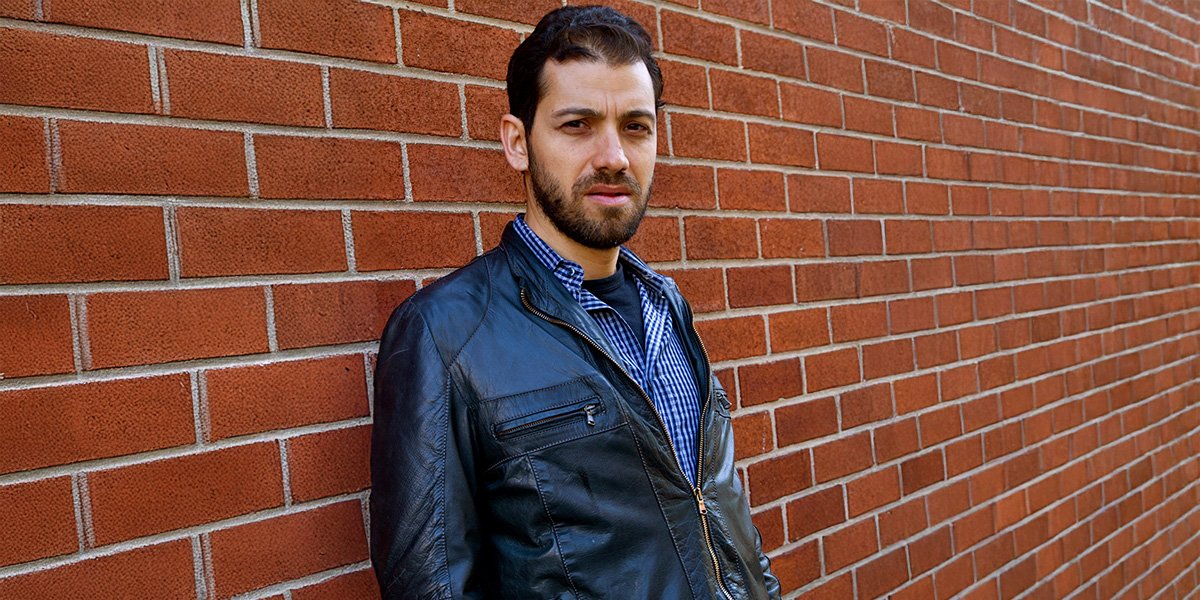PHOTO: Matt Nagin, writer, comedian, actor, and advocate, shares insights into his creative universe.
Exploring Creativity, Comedy, And Compassion Through Fiction
Matt Nagin discusses his latest book The Book of Outcasts, revealing how comedy, imagination, and charity work shape his unique literary voice.
Matt Nagin is a literary force of nature whose creative breadth defies easy categorisation. With a razor-sharp wit honed through decades in stand-up comedy and a poetic sensibility that’s earned critical acclaim, he brings an arresting voice to everything he touches. Whether performing on stage alongside comedy legends, acting opposite Al Pacino, or crafting darkly imaginative short stories, Matt’s work is as unpredictable as it is unforgettable. In The Book of Outcasts, his latest short story collection, he blends satire with surrealism, absurdity with emotional depth—inviting readers into worlds that reflect our own through a distorted, and often hilarious, lens. We spoke with Matt about his influences, his cross-disciplinary creative path, and the deeply human drive behind both his humour and his heart.
A masterful storyteller whose work is equal parts poignant, hilarious, and thought-provoking.
What inspired you to explore such surreal and imaginative worlds in The Book of Outcasts?
Emily Dickinson famously wrote: “tell the truth but tell it slant.” I believe fiction is similar. To satirize and comment effectively upon our world it is sometimes useful to create a world that is slightly askew. Also, there are poetic opportunities in surreal and imaginative landscapes that can make stories more colorful and dramatic.
Your comedy often blends satire, absurdity, and observational humour. How does your comedic sensibility influence your writing?
My comedic sensibility is an integral part of my writing. Humor helps to provide a sense of normalcy and realism, which is often critical when exploring fanciful storylines. Humor further makes troubled characters more relatable and amusing. Lastly, humor filters into my work in terms of the pacing of the stories, the repartee between characters, and the use of literary devices such as dramatic irony and hyperbole.
“Humour helps to provide a sense of normalcy and realism, which is often critical when exploring fanciful storylines.” – Matt Nagin
You’ve had success across multiple creative fields—writing, comedy, acting, and filmmaking. Do you find any of these disciplines particularly challenging or rewarding compared to the others?
Standup is probably the most challenging. One reason for this is with acting and writing you get multiple shots at it. In acting, you are generally given a couple of takes from each camera angle. With writing, you can revise and improve your work. Standup doesn’t offer you those luxuries. At the same time, when it’s going well, standup is probably the most rewarding. It’s a thrill. A dopamine hit. A chance to really connect. There’s nothing quite like it.
Do Not Feed The Clown tackles sociopolitical issues through satire. How do you balance humour with meaningful commentary?
Tone is very important. If a work has an ironic or playful tone, you can make a great deal of sociopolitical commentary, even, at times, rather acerbic commentary. Another technique that helps is self-deprecation. Once the reader feels the author doesn’t take himself too seriously, it is generally easier to get away with more.
Your poetry has been described as “powerful” and “highly recommended.” What draws you to poetry as a form of expression, and how does it differ from your other writing?
One of the best parts of creative expression is the chance to be more unfiltered. Poetry is a great avenue for that. There is also an opportunity for musicality, for playfulness, and for a kind of symbolic intensity that is not offered by any other medium.
Your involvement with charitable organisations like The Gotham Comedy Foundation and The Crohn’s and Colitis Foundation is admirable. How has this work impacted your creative journey?
Much of creativity is inner-focused. Charity work is just the opposite. What I’ve found really terrific is engaging in creative work that benefits these charitable organizations. Then a creative person can feel he is pursuing his calling and at the same time offering up some benefit to larger social causes.
What advice would you give to aspiring writers and comedians who want to carve out a unique voice in their field?
My advice would be to pursue the kind of creative work you enjoy, the kind of creative work you would like to see produced. Work hard. Be persistent. Over time a voice will emerge—possibly a unique voice—if that is what is meant for you. But even then you need to keep reinventing yourself. So never stop searching. It’s about finding new ways to take flight.


